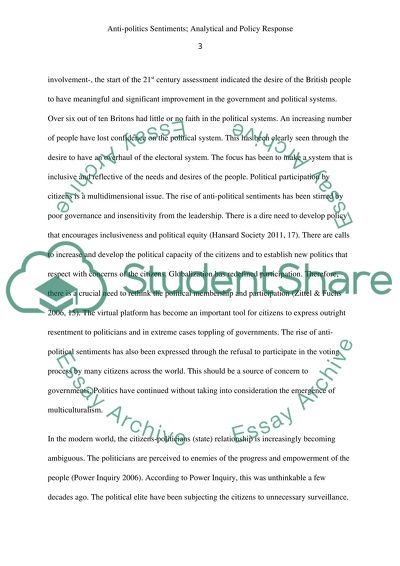Cite this document
(Anti-Politics Sentiments Term Paper Example | Topics and Well Written Essays - 2250 words, n.d.)
Anti-Politics Sentiments Term Paper Example | Topics and Well Written Essays - 2250 words. Retrieved from https://studentshare.org/politics/1614029-write-a-policy-brief-for-the-following-client-national-government-officials-on-whether-the-rise-in-anti-politics-sentiments-should-be-of-concern
Anti-Politics Sentiments Term Paper Example | Topics and Well Written Essays - 2250 words. Retrieved from https://studentshare.org/politics/1614029-write-a-policy-brief-for-the-following-client-national-government-officials-on-whether-the-rise-in-anti-politics-sentiments-should-be-of-concern
(Anti-Politics Sentiments Term Paper Example | Topics and Well Written Essays - 2250 Words)
Anti-Politics Sentiments Term Paper Example | Topics and Well Written Essays - 2250 Words. https://studentshare.org/politics/1614029-write-a-policy-brief-for-the-following-client-national-government-officials-on-whether-the-rise-in-anti-politics-sentiments-should-be-of-concern.
Anti-Politics Sentiments Term Paper Example | Topics and Well Written Essays - 2250 Words. https://studentshare.org/politics/1614029-write-a-policy-brief-for-the-following-client-national-government-officials-on-whether-the-rise-in-anti-politics-sentiments-should-be-of-concern.
“Anti-Politics Sentiments Term Paper Example | Topics and Well Written Essays - 2250 Words”, n.d. https://studentshare.org/politics/1614029-write-a-policy-brief-for-the-following-client-national-government-officials-on-whether-the-rise-in-anti-politics-sentiments-should-be-of-concern.


